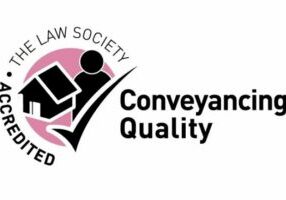Commercial Disputes
How to evict a commercial tenant
If you are a landlord of a commercial property, you may find yourself in the circumstances where you need to evict a tenant and take back possession of your property.
This area of the law can be complicated – your best route forward will depend on your specific circumstances and the terms of any lease you have in place. In this article, we look at some of the most common reasons for evicting a commercial tenant and what you can do.
What is forfeiture in commercial property?
Forfeiture is the right of a landlord to regain possession of a property where the tenant has breached the terms of the lease. The right of forfeiture must be included in the lease. However, landlords must be careful to establish that a breach has arisen. If a lease is forfeited where the right to forfeit has not been established, the tenant may be able to bring a claim for wrongful forfeiture.
Can I evict a tenant if they have not paid the rent?
In response to the Covid-19 pandemic, the rules around evicting commercial tenants for non-payment of rent have changed. To protect businesses forced to close during the pandemic, the government imposed a moratorium on commercial landlords evicting tenants who were unable to pay their rent until March 2022. In addition, a new code of conduct came into effect on 9 November 2021 and applies to all commercial leases held by businesses with rent arrears caused by the impact of the pandemic. Landlords are encouraged to come to an agreement with tenants about rent arrears rather than begin eviction proceedings.
Regaining possession by forfeiture
If a commercial tenant has not paid rent for the premises, you may be able to regain possession of the property by forfeiture. However, the process can be complicated to understand, and it is essential that you do not take action which may jeopardise your position. We would recommend discussing your specific circumstances with a solicitor before exercising your rights.
Can I evict a tenant if they have breached the terms of their lease?
If your tenants have breached any terms of the lease, you are required to serve a 146 notice before you can take action to reclaim possession of the property. This notice will be served by your solicitor to all relevant parties which includes the tenant, any subtenants, and your mortgage provider. The notice will set out clearly the details of the breach as well as any requirement to take remedial action or to pay compensation.
If the tenant has breached the repair condition clause, you may be required to offer the tenant the opportunity to claim statutory protection. If the tenant decides to do so, they must make this known within 28 days of receiving the 146 notice. The consequence for landlords is that they must seek permission from the court before taking any further actions.


















Holly Minney, Head of Dispute Resolution, said:
“The pandemic has hugely affected Landlord abilities to remove tenants from commercial premises. The new code continues to restrict the actions that Landlords are able to take against arrears incurred during the pandemic, if you wish to assess your options please contact our team to discuss your position.”